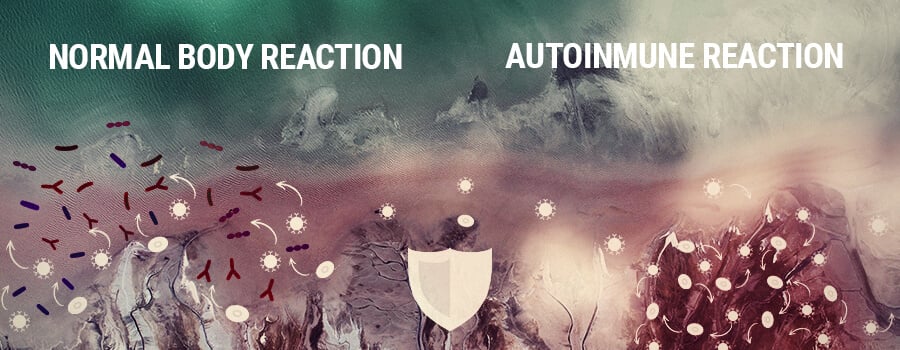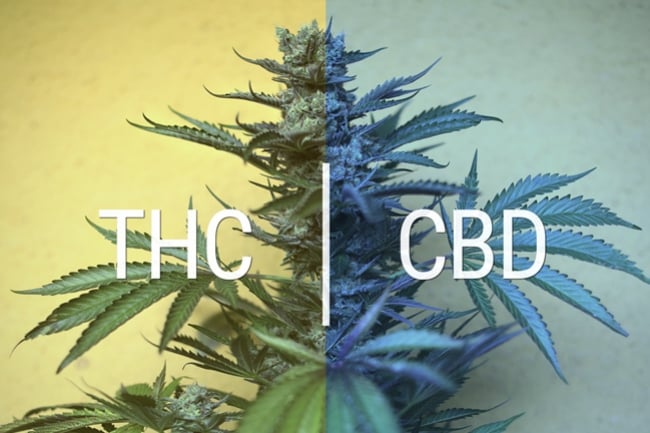.

CBD and Inflammation: The Details
CBD is a non-psychotropic molecule produced by the cannabis plant. Researchers believe it could help combat inflammation, and may play a role in pathological and athletic populations for this reason.
Inflammation contributes to a huge number of health conditions. But it’s not a standalone disease. Rather, this mechanistic process plays a key role in response to injury and infection. But chronic inflammation, arising from myriad factors, including diet and underlying health conditions, can cause havoc in the body.
Because chronic inflammatory diseases are the largest[1] cause of death across the world, scientists are on the hunt for therapeutics to tackle this physiological state. Some of them have their eyes on CBD as a potential candidate.
CBD AND THE ENDOCANNABINOID SYSTEM
CBD is formed within the trichomes of the cannabis plant as a secondary metabolite. The molecule interacts with the human body in numerous ways and exerts effects partly via serotonin and vanilloid receptors. Much like other cannabinoids, CBD can also influence the endocannabinoid system. This system is comprised of cannabinoid receptors (CB1 and CB2) that are found upon the cell membrane of many different cell types throughout the body.
Several cannabinoids achieve their medicinal effects by binding to these receptors sites. Although CBD does not directly bind to these receptors, and is in fact a known antagonist, it does sill influence the endocannabinoid system in an indirect manner. It has the ability to both enhance and reduce the binding action of certain receptors and also acts as an anandamide reuptake inhibitor.
What is anandamide, you ask? Superb question. Anandamide belongs to a class of molecules known as endocannabinoids. These molecules share a very similar shape with cannabinoids from the cannabis plant, or phytocannabinoids, which is why cannabinoids are able to bind to some of the same receptor sites.

WHAT IS INFLAMMATION?
Although often vilified and looked at through a negative lens, inflammation is actually a vital physiological process and a fundamental aspect of the body’s innate immune response. However, too much inflammation is attributed as a contributing factor for chronic diseases such as cancer and rheumatoid arthritis.
Acute inflammation is usually the result of a traumatic injury, such as a sprained ankle or strained muscles, for example, and manifests as pain, redness, immobility, swelling, and heat. This form of inflammation is a response with the purpose of protecting the injured area and triggering the healing process. Specific cells move into the affected site and begin to clear debris and damaged tissues. Although anti-inflammatory medication is often used to hinder this response and deal with the pain, the body does need to undergo this phase, thus the use of these medicines can be seen as controversial. Acute inflammation can also be caused by harmful bacteria.
Chronic inflammation is defined as inflammation that persists over long periods of time and can be caused by pathogens, viruses, and an overactive immune response. This form of inflammation can span from periods of months to years, and can occur when the immune system perceives healthy tissues as a threat and starts to attack them. This is known as an autoimmune disease. Such conditions include asthma, rheumatoid arthritis, Crohn’s disease, and sinusitis.
CBD AND INFLAMMATION
Does CBD help to quell inflammation in the body? That’s a good question, and one that researchers are working hard to answer. Chronic inflammation causes oxidative stress, which in turn causes more inflammation. Oxidative stress occurs when free radicals (highly reactive molecules with one or more unpaired electrons) outnumber antioxidants in the body, enabling them to inflict damage upon cells. Although the body produces antioxidants to quell free radical damage, sometimes internal defences aren’t enough. Luckily, many foods contain antioxidants, such as vitamin C, that help to neutralise these damaging molecules. Interestingly, researchers are exploring the potential of CBD as an antioxidant[2] in animal models of inflammation.
Ongoing studies are also exploring CBD’s potential to hamper inflammation by acting on various receptors in the body. However, the action of CBD on these sites remains unclear. acting on various receptors[3] -
Potential molecular targets include:
- Cannabinoid receptors: The primary endocannabinoid system receptors are widespread throughout the nervous system and immune system, and play a regulatory role when it comes to inflammation. Although CBD has little affinity with these sites, it still interacts with them in impactful ways.
- TRP channels: CBD binds to several transient receptor potential (TRP) channels, some of which are involved in inflammation and redox balance (the balance between free radicals and antioxidants).
- PPARy: Regarded by some as a cannabinoid receptor, this nuclear receptor works to modulate proinflammatory gene expression.
Furthermore, studies are investigating the impact of CBD on models of intestinal inflammation. For example, research published in the journal PLOS One administered the cannabinoid[4] to mice to observe its effects on inflamed intestinal cells.

CBD FOR ATHLETES
Athletes represent a population with a high risk of acute musculoskeletal injury and chronic pathologies. Acute injuries always start with an inflammatory response. Although the findings outlined above are encouraging, there is still a lot we need to learn about CBD’s impact on combating pain and reducing swelling and soreness. Interestingly, that hasn't stopped the World Anti-Doping Agency (WADA) from recently removing CBD from its prohibited substances list. This means Olympic athletes and professional sports players will no longer be penalised for using CBD before or after competing.
Medical DisclaimerInformation listed, referenced or linked to on this website is for general educational purposes only and does not provide professional medical or legal advice.
Royal Queen Seeds does not condone, advocate or promote licit or illicit drug use. Royal Queen Seeds Cannot be held responsible for material from references on our pages or on pages to which we provide links, which condone, advocate or promote licit or illicit drug use or illegal activities. Please consult your Doctor/Health care Practitioner before using any products/methods listed, referenced or linked to on this website.
- Chronic Inflammation - StatPearls - NCBI Bookshelf https://www.ncbi.nlm.nih.gov
- Antioxidative and Anti-Inflammatory Properties of Cannabidiol https://www.ncbi.nlm.nih.gov
- Antioxidative and Anti-Inflammatory Properties of Cannabidiol https://www.ncbi.nlm.nih.gov
- Cannabidiol reduces intestinal inflammation through the control of neuroimmune axis - PubMed https://pubmed.ncbi.nlm.nih.gov









































